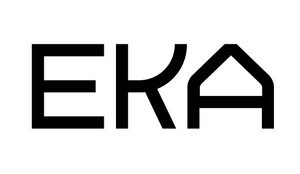Põhja puiestee 7
10412 Tallinn
Estonia
Hours: Monday–Sunday 8am–8pm
T +372 626 7313
artun@artun.ee
The Master of Urban Studies is a two-year, English-language program focused on contemporary urbanism. The program combines history, theory and practice to rethink prevailing understandings of urbanization, and to contribute to building more equitable urbanisms than the current ones. The main premise of the program is that the subject of urban studies is irreducible to the “city”: the global urban arena today, more than ever before, is where struggles over our collective future play out.
This transdisciplinary program builds on insights from critical urban geography, urban planning and architectural history. Urbanism is seen through the conceptual lenses of socio-spatial dialectics and uneven urban development. Themes addressed in the program include housing and gentrification; urban nature and ecology; infrastructure and global networks. Urban Studies will introduce you to the basics of urban design and planning, as well as to a range of skills such as how to conduct a field work and write critically about urbanism. The art school/architectural department where you will study provide a great environment to combine critical thought and creative imagination.
The core of the Urban Studies curriculum is our signature urban research studio, in which students analyze and participate in actual urban situations through a combination of desk research, field work and multi-sited interventions. The research studio allows for different outcome formats, such as essays/written reports, documentary videos and urban interventions. Recent student projects include comparing how the term “wasteland” is understood in different cultures, exploring the interplay between wetland restoration programs and oil-shale industry in Estonia and examining how John Locke’s labor theory of value and settler colonialism intersected in the making of Charleston, South Carolina (click here to see more projects). Additionally the curriculum consists of lecture courses, seminars, thematic workshops and skill-based training sessions, as well as experimental teaching methods such as collective reading retreats.
Academic staff and guests
The program is coordinated by Maroš Krivý and Keiti Kljavin. Tutors include Andra Aaloe, Hanna Husberg, Jussi Jauhiainen, Tahl Kaminer, Flo Kaserau, Kaija-Luisa Kurik, Leonard Ma, Kristi Grišakov, Mattias Malk, Agáta Marzec, Chiara Rabbiosi, Karlis Ratnieks, Helen Runting, Paco Ulman and Sean Tyler. Past guest speakers and critics include: Ross Exo Adams, Sandra Jasper, SECRETARY: Office for Architecture, SELIM, Helena Mattson and Tuomas Toivonen.
How to apply?
Apply by March 1. For more information contact admissions [at] artun.ee or attend the online info session on February 4.
About Estonian Academy of Arts
Established in 1914, the Estonian Academy of Arts (EKA) is the only public university in Estonia providing higher education in fine arts, design, architecture, media, visual studies, art culture, and conservation. In 2018, EKA moved to its new premises in the Kalamaja district in Tallinn, Estonia.



